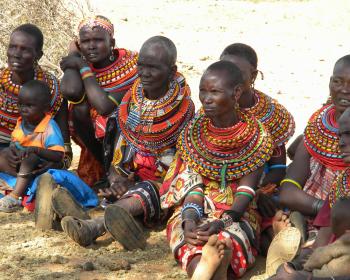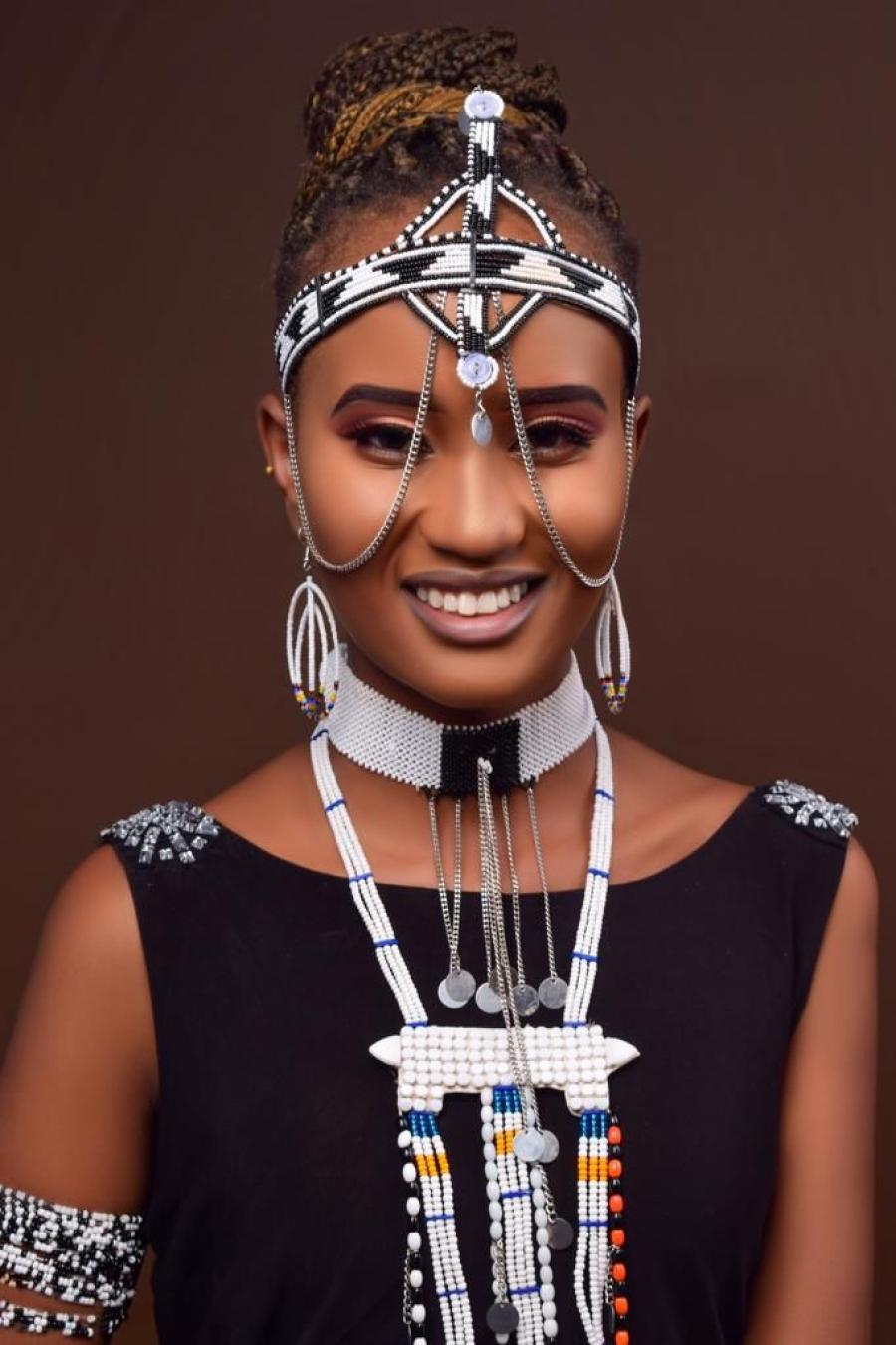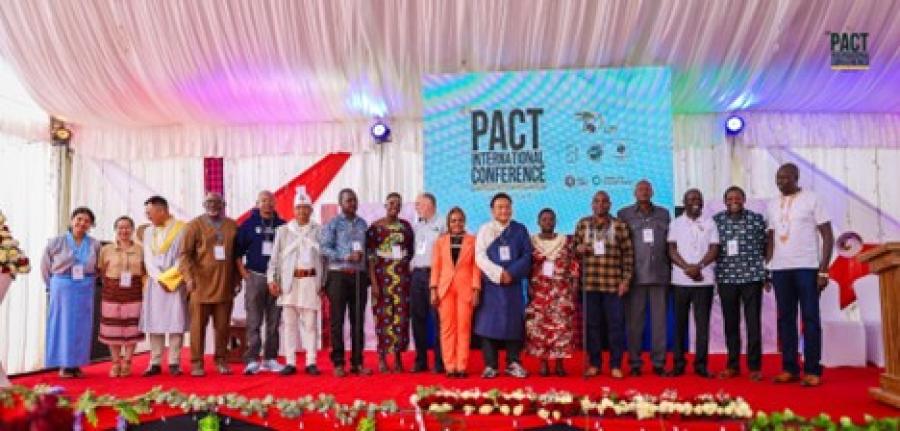In the strongly patriarchal society of the Maasai, it's very hard for a woman to rise above her station, but Mary Simat is no ordinary woman.
Things are changing for Maasai women in Kenya. Although Maasai culture provides equal roles to men and women in many ways, it has traditionally been a patriarchy, with women having little choice about education, marriage, or career. But thanks to Mary Simat, the old ways are bending, and Maasai women are enjoying greater freedom than ever before. And nowhere is that more evident than in Mary herself. She came from a traditional, restrictive background in the Narok district, but has fought for her rights and is now the chairperson for the Indigenous Peoples of Africa Coordinating Committee (IPACC), the foremost coalition of indigenous peoples’ organizations on the continent.
From that position she is outspoken about the situation of Maasai women. The Maasai culture treasures its women, but because most of the decisions of a community are decided by several male elders, it is difficult, for example, for a woman to advocate for her own rights to education. “Seventy-five percent of the school-going children are boys,” Mary says. “Young girls have less opportunity to go to school, since they must get married.” Polygamy is standard in Maasai culture, and most girls are married quite young. Mary describes the life of a young Maasai girl being married at the age of 12 or 13. “She must leave her home and move in with her husband and her mother-in-law,” she says. “Once she has arrived at her new home she must familiarize herself with the new environment, build a house, take care of household chores, childcare, crop rotation, and animal tending.” The men believe that by taking on all these roles women are equal to them in duty. While the men are out taking care of the livestock their women are doing equal work at home. “Unfortunately,” Mary says, “this prevents girls from ever receiving a full education; thus most girls in Maasai culture are illiterate.”
Mary’s life took a different path. Mary’s mother saw the importance of education for young girls, but her husband disagreed about sending Mary to school, so she made the risky decision to divorce her husband. At the age of six, Mary moved with her mother back to their hometown, where she was able to attend primary school. She went on to graduate from secondary school and teacher training college. Her access to education fueled her desire to educate other young girls, and she taught for 17 years in her community. “It was because of the inspiration of my mother that I went on to do the same work for girls in the Maasai tribe,” Mary says. Mary’s mother is now 70 years old and still encouraging Mary’s fight for the rights of women in Maasai culture.
Although Mary retired from teaching in order to marry, by choice, and give birth to three children, she has been able to stay involved in the issues she cares most about. Now she is the executive director of MAWEED, Maasai Women for Education and Development. Alongside other educated Maasai women, she is teaching the community about the importance of sending young girls to school, and teaching women to become economically empowered. Mary says that since girls normally must marry at a young age for lack of their own source of income, it is all the more important to “make women economically empowered so they can stand by themselves and be able to take their daughters to school. Once women gain economic independence they will not need to marry and depend upon their men for income, they can work and make their own decisions for their children.”
Unlike other patriarchal cultures, such as those in Egypt, which are mostly governed by religion, Mary says, “the Maasai people believe in God but they do not govern their lives by religion. They are faithful and religious, but their religion is not like the Muslims, where women are oppressed. It is more of a traditional structure that decides their position.”
In addition to Mary’s work with MAWEED, she has been the chairperson of IPACC for the past three years—the first woman to hold that office. This organization is a network of 150 indigenous peoples organizations in 20 African countries. Their purpose is to unite diverse community-based indigenous peoples’ organizations into an alliance for effective advocacy. During Mary’s time as the chairperson, she and the organization have made great strides in the preservation of indigenous people’s rights and representation. Their biggest success arrived with the adoption of the United Nations’ Declaration on the Rights of Indigenous Peoples, which passed, Mary says, partly because of their training, serious lobbying, and voting at the international level. But IPACC’s work on the declaration is ongoing. “It is not enough to just make this declaration,” Mary says. “We must translate it into the various languages of the African people in order for them to understand how to use the declaration as a means for pushing for their rights in the parliaments of Africa.”
Some of the other important issues that Mary has been working on include preservation of traditional language and cultures, climate change and drought’s effect on the people, and gender issues. She is also very influential in the UN system. In May 2007, she spoke at the United Nations Permanent Forum on Indigenous Issues alongside the other representatives of indigenous peoples’ organizations. At this forum she proclaimed, “We, the indigenous peoples in Africa, should be recognized. We should be respected. It’s not fair that, when we simply ask for our rights, we are seen as being ‘rebellious.’ We want to maintain our culture and our connection to our Maasai lands.” Despite the challenges she and other indigenous people face, Mary is optimistic. “I see a brighter future for the indigenous peoples of Africa,” she says, “because Africa is the only continent where the indigenous people have organized into groups, and as a united team we can make great strides towards a better future for our people.”
That optimism carries through even with regard to the recent uprising in Kenya over the disputed election. Mary and the Maasai people have not been involved in the violence; indeed, she says she “feels it is better to remain quiet and at home not doing anything to cause trouble.” But she feels confident that the fighting will end and Kenya will emerge even stronger in the end. “We will get past this!” she says.
Melissa Gittelman is a Cultural Survival intern.



